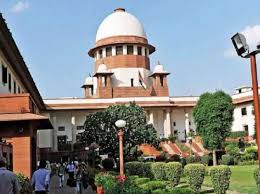(A) Evidence Act, 1872, Section 17 and 18 – Evidence – Admission – Held that admission is a conscious and deliberate act and not something that could be inferred – An admission could be a positive act of acknowledgement or confession – To constitute an admission, one of the requirements is a voluntary acknowledgement through a statement of the existence of certain facts during the judicial or quasi-judicial proceedings, which conclude as true or valid the allegations made in the proceedings or in the notice – The formal act of acknowledgement during the proceedings waives or dispenses with the production of evidence by the contesting party – The admission concedes, for the purpose of litigation, the proposition of fact claimed by the opponents as true – An admission is also the best evidence the opposite party can rely upon, and though inconclusive, is decisive of the matter unless successfully withdrawn or proved erroneous by the other side – Section 18 of the Act lays down the conditions and the requirements satisfied for applying to a statement as an admission. (Para 13 and 14)
(B) Hindu Marriage Act, 1955, Section 11, 12, 16 – Hindu Succession Act, 1956, Section 3(j), 6 – Evidence Act, 1872, Section 17 and 18 – Suit for partition –Children of void or voidable marriage – Admission –Preface to Ex. B-6, mortgage deed, would show that ‘M’ the propositus of the parties to the suit treated Appellant No. 1, Respondent No. 1 and Respondent No. 3 as his sons – The document was executed for himself and on behalf of his minor sons – The statement is made by ‘M’ during the subsistence of his interest in the property mortgaged – Respondent No. 3 definitely claims through ‘M’ for the half share notionally partitioned in favour of ‘M’ – Appellants also rely on the patta dated 27.04.1984 (Ex. B-3) standing in the name of ‘M’ and his sons; the voters lists, viz., Exs. B-4 and B-5, to show that ‘M’ and his sons lived as a family – Held that by applying Sections 17 and 18 of the Act, 1872,statement made by ‘M’ describing Appellant No. 1 and Respondent No. 1 as his sons and treated as an admission by record – This statement satisfies the ingredients of Section 18 of the Act – In the absence of contrary evidence and withdrawal of admission or explained through admissible evidence, the admission in the mortgage deed, viz., Ex. B-6, coupled with the joint patta and voters lists, declares the status of Appellant No. 1, Respondent No. 1, along with Respondent No. 3 as the sons of ‘M’ -Status derived through an admission in Ex. B-3 vis-à-vis Appellant No.1 as a natural corollary could be extended to Appellant No. 3 as a child/daughter of ‘M’ -Argument of Respondent No. 3 that the status of Appellant Nos. 1 and 3; and Respondent No. 1 as the children of ‘M’ is without evidence held to be untenable and rejected – Applying principle on the entitlement of share to the children of void or voidable marriages, the judgements under appeal liable to be set aside – Appeal allowed by passing a preliminary decree of partition for the plaint schedule properties, firstly between Respondent No. 3 and ‘M’ – Secondly, in the notionally partitioned share of ‘M’, his children, i.e., Appellant Nos. 1 and 3, Respondent No. 1 and Respondent No. 3 are allotted equal shares. (Para 15 to 19)
SUPREME COURT OF INDIA
2024 STPL(Web) 45 SC
[2024 INSC 47]
Raja Gounder And Others Vs. M. Sengodan And Others
Civil Appeal No. 600 of 2024 (@ Slp(C) No. 13486 of 2007)-Decided on 19-1-2024
https://stpllaw.in/wp-content/uploads/2024/04/2024-STPLWeb-45-SC.pdf







